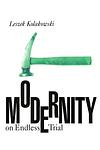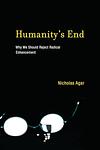The Greatest Polish, New Zealand "Nonfiction" Books Since 1980
Click to learn how this list is calculated.
This list represents a comprehensive and trusted collection of the greatest books. Developed through a specialized algorithm, it brings together 300 'best of' book lists to form a definitive guide to the world's most acclaimed books. For those interested in how these books are chosen, additional details can be found on the rankings page.
Genres
Countries
Date Range
Reading Statistics
Click the button below to see how many of these books you've read!
Download
If you're interested in downloading this list as a CSV file for use in a spreadsheet application, you can easily do so by clicking the button below. Please note that to ensure a manageable file size and faster download, the CSV will include details for only the first 500 books.
Download-
1. Shah Of Shahs by Ryszard Kapuscinski
This book is a compelling blend of history and personal narratives, set against the backdrop of Iran's 1979 revolution. The author, a seasoned journalist, delves into the complex tapestry of Iranian society, exploring the rise and fall of the last monarch. Through a series of vignettes and interviews with Iranians from all walks of life, the narrative captures the atmosphere of fear and hope that defined the era. The work is as much an examination of the mechanics of power and the ease with which a society can be manipulated as it is a chronicle of a pivotal moment in Iran's history. The author's lyrical prose and sharp insights offer a timeless reflection on the nature of tyranny and the human struggle for freedom.
-
2. Alicia by Alicia Appleman-Jurman
The book is a harrowing memoir of a young Jewish girl's survival during the Holocaust. It recounts her life from a peaceful childhood in a small Polish town to the unspeakable horrors of Nazi occupation. As her family is decimated and her world is torn apart, she becomes a courageous messenger for the Jewish resistance, risking her life to help others while on a relentless quest for survival. Her story is one of remarkable resilience, hope, and the enduring strength of the human spirit in the face of unimaginable adversity.
-
3. Imperium by Ryszard Kapuscinski
"Imperium" is a gripping account of the author's travels through the Soviet Union during the final years of its existence. With a keen eye for detail and a deep understanding of the complexities of power, the author delves into the lives of ordinary people and high-ranking officials alike, revealing the oppressive nature of the Soviet regime and the profound impact it had on the lives of its citizens. Through vivid descriptions and insightful observations, the book offers a compelling narrative that sheds light on the inner workings of a crumbling empire.
-
4. Common Sense, Science, And Scepticism by Alan Musgrave
This book critically examines the foundations of knowledge, blending philosophy with practical reasoning to navigate the concepts of common sense and scientific skepticism. It challenges readers to question how we distinguish between what is considered 'common sense' and what is scientifically proven, delving into the philosophical underpinnings of skepticism itself. Through a rigorous analysis, the text explores the limits and strengths of human understanding, encouraging a thoughtful reconsideration of how we accept or reject information in the realms of science and everyday life. It serves as both an introduction to philosophical skepticism and a deep dive into the epistemological questions that underlie our quest for knowledge.
-
5. Modernity On Endless Trial by Leszek Kolakowski
"Modernity on Endless Trial" is a collection of essays that delve into the philosophical and cultural critiques of modernity, exploring the tensions and challenges inherent in the Western intellectual tradition. The author examines a wide range of topics, including the role of religion, the legacy of Enlightenment, the critiques of Marxism, and the philosophical underpinnings of modern political ideologies. Through these essays, the author offers a profound reflection on the nature of human belief, the limits of reason, and the ongoing struggle to find meaning and value in an increasingly secular and fragmented world. The book serves as a critical inquiry into the intellectual crises of the modern age, questioning the assumptions and hopes that have shaped contemporary Western thought.
-
6. Humanity's End by Nicholas Agar
This book presents a thought-provoking exploration of the potential future of human evolution, focusing on the implications of advanced biotechnologies and artificial intelligence. The author argues that these technologies might lead to the emergence of posthuman beings—entities vastly more intelligent and possibly immortal compared to current humans. The narrative delves into the ethical, philosophical, and societal impacts of such a transformation, questioning whether this evolution would signify the end of humanity as we know it or the beginning of a new, unimaginable phase of existence. Through a careful examination of the potential benefits and risks, the book challenges readers to consider the value of human qualities and the essence of what it means to be human in a rapidly changing world.
Reading Statistics
Click the button below to see how many of these books you've read!
Download
If you're interested in downloading this list as a CSV file for use in a spreadsheet application, you can easily do so by clicking the button below. Please note that to ensure a manageable file size and faster download, the CSV will include details for only the first 500 books.
Download




